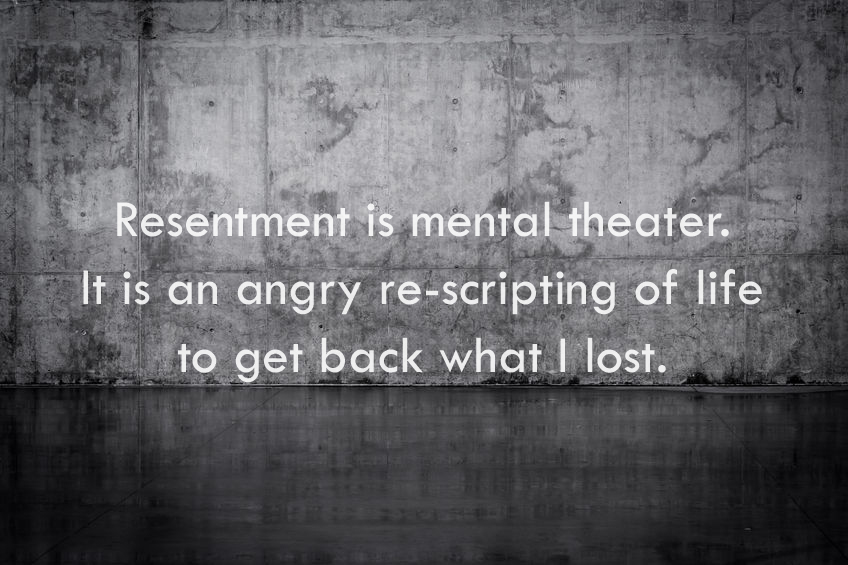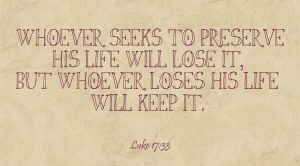Resentment: Re-Chewing Past Disappointments
“Be not quick in your spirit to become angry, for anger lodges in the heart of fools.”
Ecclesiastes 7:9
Anger resides in the heart of fools? Uh-oh. That would mean that I am a fool.
Resentment has been living in my heart for years. I hide it. I don’t express it out loud (well, there’s the sarcasm and ‘jokes’). But internally, it is active. I ‘re-feel’ a lot of my past. I’m like a cow chewing (or more precisely ‘re-chewing’) it’s cud. I bring up old injuries and re-play them in my head, re-feel them, re-argue them.
Resentment can be defined as: ‘bitter indignation for being treated unfairly’. But resentment isn’t a one-time occurrence. Think about the cow. RE-sentment, is bringing up the bitter indignation in order to go over it again and again.
In order to paint a more disgusting picture, let’s go the dictionary again and define a cow’s ‘cud’: ‘partly digested food returned from the first stomach of ruminants to the mouth for further chewing.’ So if you don’t identify with the first picture of foolishly renting your heart to anger, how about being a cow returning ruminants of partially digested history to your mouth for further processing? This is where we get the word ‘ruminating.’
One example (a rather safe example) of my reflux/ruminating is the resentment I hold toward my high school basketball coach; the man who bears sole responsibility for my not being a retired NBA player.
Here’s how it works. Something triggers me; let’s say I go play basketball. And being older and slower – I don’t perform well – disappoints me. So I don’t feel so good about myself and I look for a reason to feel better – like finding someone to blame. And what do you know? Up comes the resentment towards my coach. He’s the one who kept me from playing. Therefore I didn’t get the chance to hone my skills. Voila! He’s the reason why I didn’t shoot so well today.
This is totally ludicrous of course. I didn’t shoot well because I am old and didn’t have that great a shot in the first place. So I don’t express my resentment out loud. I don’t even tell anybody that I am thinking about Coach H. But I think about him. In the dark interior ruminating place, I don’t have to be logical. In there, I re-taste the familiar hurt and disappointment. Indignation sours my breath.
Someone on the court asks, “Are you OK?”
“What?” I say, “Oh. Just wishing I’d hit that lay-up.”
But it’s deeper than that. I’m wishing I could go back in time. Wishing I could say a thing or two to that coach. Or show him a thing or two if I could just re-do practice. Or I’m wishing I’d been a different kid – one who listened to coaching. Maybe if I had just listened. I chew these things in my heart. On any given day, this chain of cud-thinking can have me re-playing my whole life. Re-playing. Re-feeling. Re-arguing. Trying to win. Trying to make it come out right.

Resentment is mental theater. It is an angry re-scripting of life to get back what I lost. On the surface resentment looks like blame and unforgiveness towards others (that Coach didn’t give me a chance) or self-blame (I was so stupid as a kid). But underneath, it is an attempt to re-create the world. It attempts to contrive a life where my disappointments get justice, where my dreams come true. It’s an attempt to be God.
But alas, you can’t re-write reality. So resentment looks for dark spaces; it rents space in your insides. There you can alter reality – at least for a while. In that interior pseudo-place you pretend that you can re-explain things, you can re-argue the case. But all this acidic rumination has a cost. While you are re-creating that unreal place, you miss life in the real world. You don’t just miss the lay-up, you miss the fact that you were able to take a lay-up, that you are still on the court, that you can play at all. Resentment re-plays the past but forfeits the present.
How foolish.
Note: My example is one where my past injustice was more perceived than real. Your resentment might be about a real injustice – a place where you were truly mistreated or abused. Yet resentment remains a foolish option whether the injustice is real or perceived.
Resentment feels like control. It feels like a way to overcome the wrong. It feels like a way to stay safe from re-injury. And it does harden you, but it doesn’t heal you. In fact, it causes further injury to yourself. Why do that to yourself?
 Roger Edwards joined The Barnabas Center in 1991. In addition to counseling individuals & couples, Roger teaches & leads discussion groups about applying the Bible to everyday life. He is a licensed professional counselor, holds a master’s degree in biblical counseling from Grace Theological Seminary in Indiana & earned a bachelor’s degree in engineering from UNCC. He is married to Jean, and they have seven children.
Roger Edwards joined The Barnabas Center in 1991. In addition to counseling individuals & couples, Roger teaches & leads discussion groups about applying the Bible to everyday life. He is a licensed professional counselor, holds a master’s degree in biblical counseling from Grace Theological Seminary in Indiana & earned a bachelor’s degree in engineering from UNCC. He is married to Jean, and they have seven children.
Save
Save
Save
Save
Save
Save
Save
Save
Save
Save
Save








